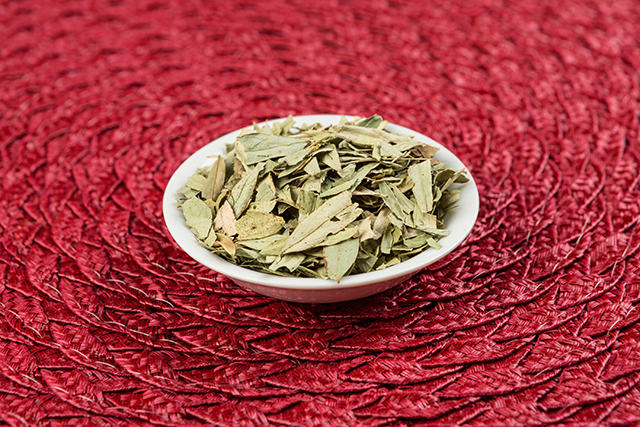Danshen, a traditional Chinese medicine, can be the key to treating oral cancer
10/11/2018 / By RJ Jhonson

You may not hear about oral cancer as much as, say, breast, lung, liver, or prostate cancer, but it isn’t any less deadly. Even today, it’s still considered a dangerous type of cancer – one that is hard to treat. A study published in the journal BMC Complementary and Alternative Medicine discusses how red sage (Salvia miltiorrhiza), also known as Danshen in Chinese medicine, can be used to prevent oral cancer tumors from spreading, causing them to die out instead.
Oral cancer is one of the deadliest forms of cancer. The Oral Cancer Foundation estimates that 49,750 Americans will be diagnosed with the disease this year alone. Of this figure, 9,750 will die from the disease. This means that just in the U.S., approximately one person dies of oral cancer every hour.
It’s not a lack of treatment that makes oral cancer so deadly. The disease often produces no pain or notable changes during its onset. By the time patients notice, cancer has already metastasized and has progressed to an advanced stage. Moreover, oral cancer has a high risk of growing subsequent primary tumors, which means that a patient is about 20 times at risk of developing a second cancer should they survive their first encounter. The relapse usually happens after five to 10 years.
Danshen is an important medicinal herb in Chinese medicine, particularly as a treatment for both chronic and neoplastic inflammatory diseases. These applications prompted the authors to investigate the effects of red sage extracts on oral cancer cells in both in vivo and in vitro settings.
To investigate the effects of the herb in vitro, they exposed human oral cancer SAS, SCC25, OEC-M1, and KB drug-resistant cell lines to varying concentrations of Danshen extracts. For the in vivo test, the researchers used an oral cancer xenograft mouse model. The action of pro-apoptotic chemicals was examined and their antitumor effects were compared to those of 5-fluorouracil, a common anti-cancer medication.
Analyses revealed that Danshen extract strongly inhibited the proliferation of oral cancer cells (SAS, SCC25, and OEC-M1) by inducing apoptosis through the caspase pathway. The in vivo test showed that Danshen extract was able to suppress the growth of SAS cancer cells and route the resistance of KB drug-resistant cancer cells.
The authors concluded that Danshen extract can be used as a potential anti-cancer agent, especially as a treatment for oral cancer. (Related: Oral Cancer May be Treated with Proanthocyanidins from Medicinal Plants.)
Preventing oral cancer
It’s possible to lower your risk of developing oral cancer. Here are some tips you can follow:
- Avoid tobacco – Using tobacco, whether as a cigarette or in chewable form, exposes your mouth to chemicals that can cause cancer. If you are an active smoker, quitting will lower your risk of developing the disease. If you are not a smoker, you’d do well to not even make an attempt.
- Drink moderately – Excessive alcohol intake can irritate the cells in your mouth and make them much more prone to oral cancer than normal. If you want a good idea of what “moderately” means, you can refer to your country’s alcohol guidelines. For instance, the U.S. recommends two glasses of liquor for men and one glass for women daily.
- Eat healthily – Consuming a healthy diet, especially one that has plenty of vitamins and antioxidants, will protect your cells from damage and will lower your risk of developing oral and other types of cancer.
- Avoid excessive sun exposure – Too much sun exposure can be cancerous to your lips. You can lower the risk by staying under the shade as much as you can. If you must go out, remember to bring an umbrella or wear a wide-brimmed hat.
- Visit a health professional – Going through regular mouth checkup will ensure your mouth’s overall health. Oral cancer is hard to detect, but with regular checkups, your specialist may notice abnormalities and act on them before they get worse. When it comes to any type of cancer, earlier is always better, after all.
Learn more about oral and other types of cancer at Cancer.news.
Sources include:
Tagged Under: alternative medicine, anti-inflammatory, danshen, herbal medicine, mouth cancer, natural cures, oral cancer, oral care, oral health, red sage, remedies, Salvia miltiorrhiza




















